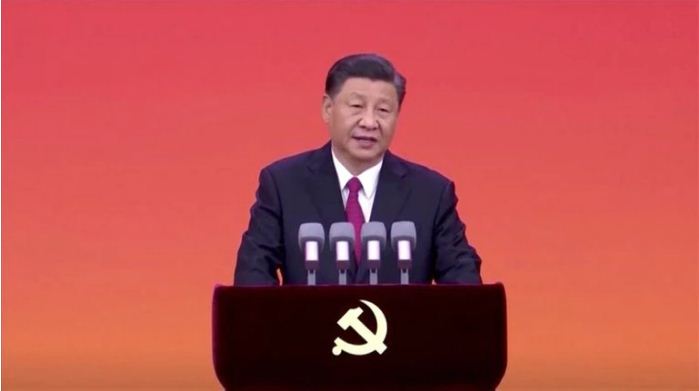The Chinese regime has launched an offensive in recent days to further limit the freedoms of its citizens and keep society at bay.
Xi Jinping wants to be the new Mao Zedong. He is preparing to assume his third consecutive term in 2022, which would be an unprecedented fact since 1982 there was a limit that did not allow more than 2 consecutive terms. This was modified in 2018 through a constitutional amendment promoted by the head of the regime that was voted by the party congress with 2,958 votes in favor, 2 votes against, and 3 abstentions.
In the framework of what would come to be something like an electoral campaign – taking into account that the rules of the political game in China are very different from those of Western democracies – centralism has carried out a deep regulation campaign that affects practically all sectors of the economy and social life. From the circles of power they call it a ” rectification ” campaign, according to an article published
The areas targeted by this “campaign” are so diverse that practically no sector remains without being modified or intervened by the state. That of the entertainment, for example, was the most affected by this cultural offensive: all skills programs were banned from the style “American Idol” have among its competitor’s men “effeminate” and were removed from the internet all the movies and series of the successful actress Zhao Wei, as well as all the news articles that mention her.
On the other hand, shares of Chinese tech giants – such as Alibaba and Tencent – suffered losses of more than $ 1 trillion after new regulations and limitations on handling their money were announced. In addition, the education industry was also severely decimated after, overnight, for-profit tutoring – which represents a large portion of the sector – was banned. In this sense, the imposition of the teaching of “Xi Jinping’s Thought” in primary schools was reinforced, and foreign applications of both games and learning were prohibited.
“ It is surprising and significant. It is clear that this is not a sectoral rectification, but an entire economic, industrial and structural rectification, “said Jude Blanchette, holder of the Freeman Chair in China Studies at the Center for Strategic and International Studies.
In theory, according to the authorities, these restrictions are aimed at equalizing the conditions of access to education, which are very competitive and alleviate their economic burden on families. However, other regulations targeting youth seem more aimed at asserting control over popular culture.
Male celebrities known for their androgynous style were also heavily targeted by the regime and its new policies. Television stations were ordered to promote “masculinity” and to stop promoting “abnormal beauty standards,” such as “Qingdao,” which is a Chinese term that translates to “effeminate men” but with a negative connotation.
Online gaming platforms were also forced to remove content promoting “wrong values” such as “effeminate” culture and “money worship. ” This measure comes after the regime limited the daily use of video games for young people, and forced companies to control said regulation.


















































































